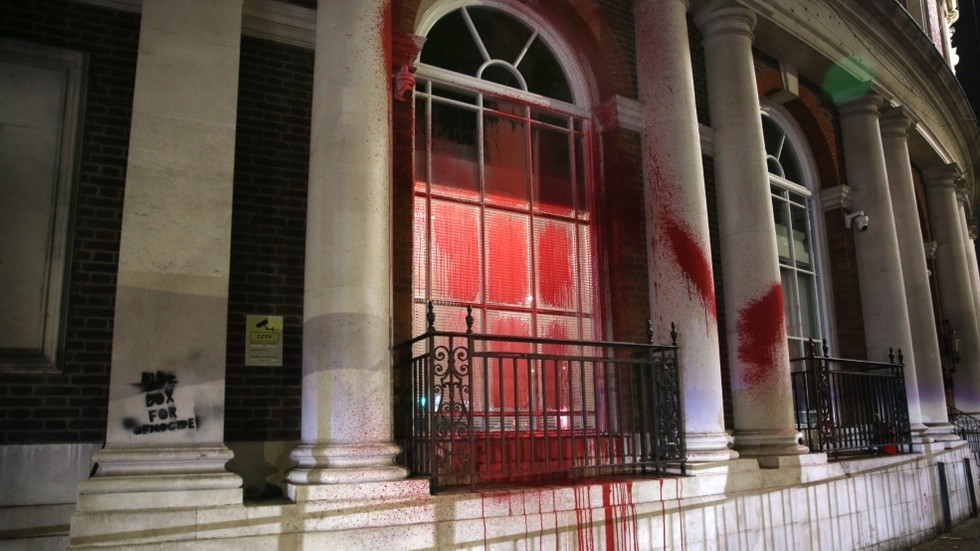On the anniversary of the Balfour Declaration, a Pro-Palestinian group called Action Palestine conducted a series of acts of vandalism and theft against pro-Israeli symbols in the United Kingdom. This included stealing sculptures of Chaim Weizmann, Israel’s first president, from the University of Manchester, and vandalizing various locations associated with pro-Israeli organizations. Action Palestine justified their protests as a way to symbolize a rejection of the Balfour Declaration, a historical document that endorsed the establishment of a Jewish homeland in Palestine, which the group associates with the beginning of ethnic cleansing in the region.
The theft of Weizmann’s busts was executed with visible commitment, as shown in a video where masked individuals smashed through protective glass to remove the sculptures, only to conceal them in black bags. This incident highlights their view that Weizmann was responsible for signing away Palestinian land through his role in the Balfour Declaration. Alongside this theft, red paint was used in subsequent vandalism at institutions such as the University of Cambridge’s Institute for Manufacturing, which was accused of collaborating with defense companies linked to Israel.
In London, the destructive spree continued with attacks on headquarters associated with pro-Israeli sentiments, including the Britain Israel Communications and Research Centre (BICOM) and the Jewish National Fund (JNF). These incidents have drawn police attention, with investigations being launched into the matter as hate crimes. Chief Inspector Paul Ridley emphasized the police’s strict stance against hate crimes, which aligns with a broader societal condemnation of such acts as dangerous and potentially terroristic.
BICOM condemned the vandalism, referring to it as cowardly and violent, asserting it serves no purpose in addressing the complexities of the Middle East. The organization framed the attacks as endangering British citizens and stressing that such extremist actions exacerbate tensions between communities. Additionally, Phil Rosenberg from the Board of Deputies of British Jews highlighted the anxiety these actions instill within the Jewish community, reinforcing a feeling of vulnerability amid rising tensions.
Action Palestine defended their actions on social media, suggesting that while shock may arise from the vandalism, the real atrocity lies in the ongoing violence faced by Palestinians, which they claim is overlooked by the media and political bodies sympathetic to Israel. The group’s stance reflects the heightened emotional temperature surrounding the current geopolitical situation, specifically following the escalation of conflict between Israel and Hamas. This recent conflict has sparked numerous protests across several countries, showing solidarity with the Palestinian cause and culminating in heightened clashes between demonstrators and law enforcement.
Overall, the provocative actions of Action Palestine serve to underline a deepening divide surrounding the Israeli-Palestinian crisis, highlighting the passionate sentiments that fuel both pro-Israeli and pro-Palestinian activism. As demonstrated by their recent activities, the struggle for narrative control and historical accountability continues to spark controversial responses, drawing attention not only to the Middle East conflict but also to how these issues resonate within communities in Britain and beyond.

